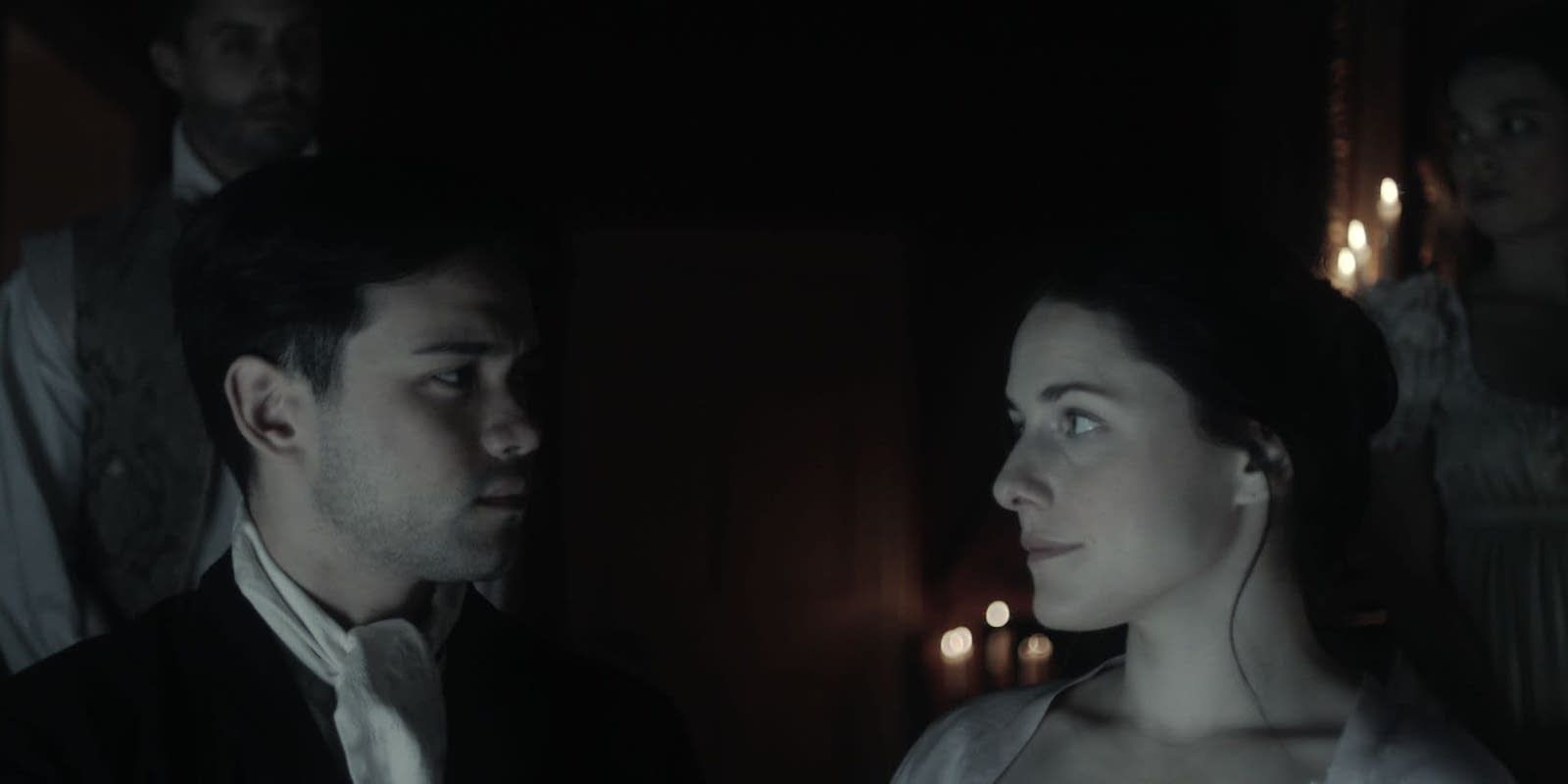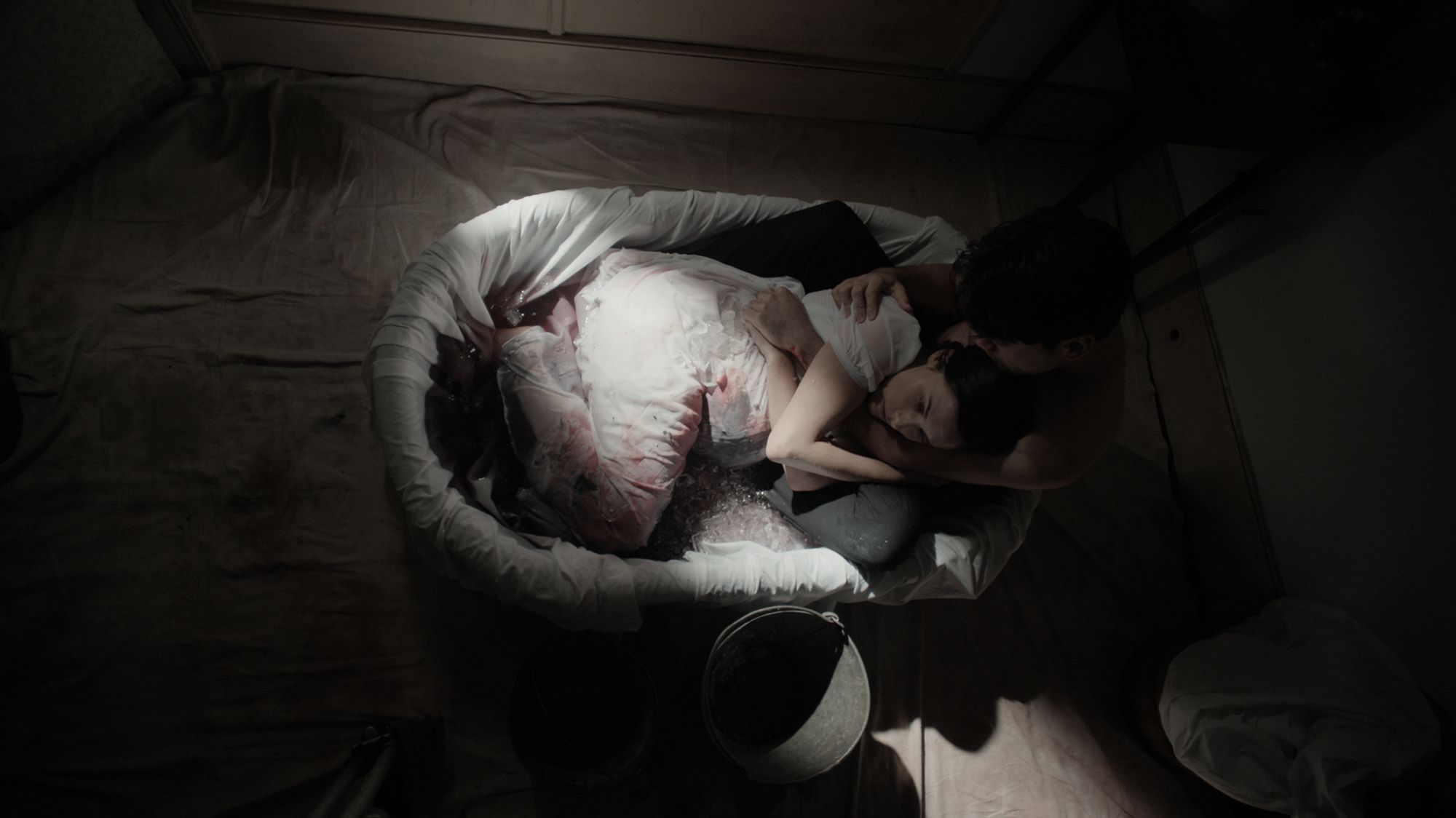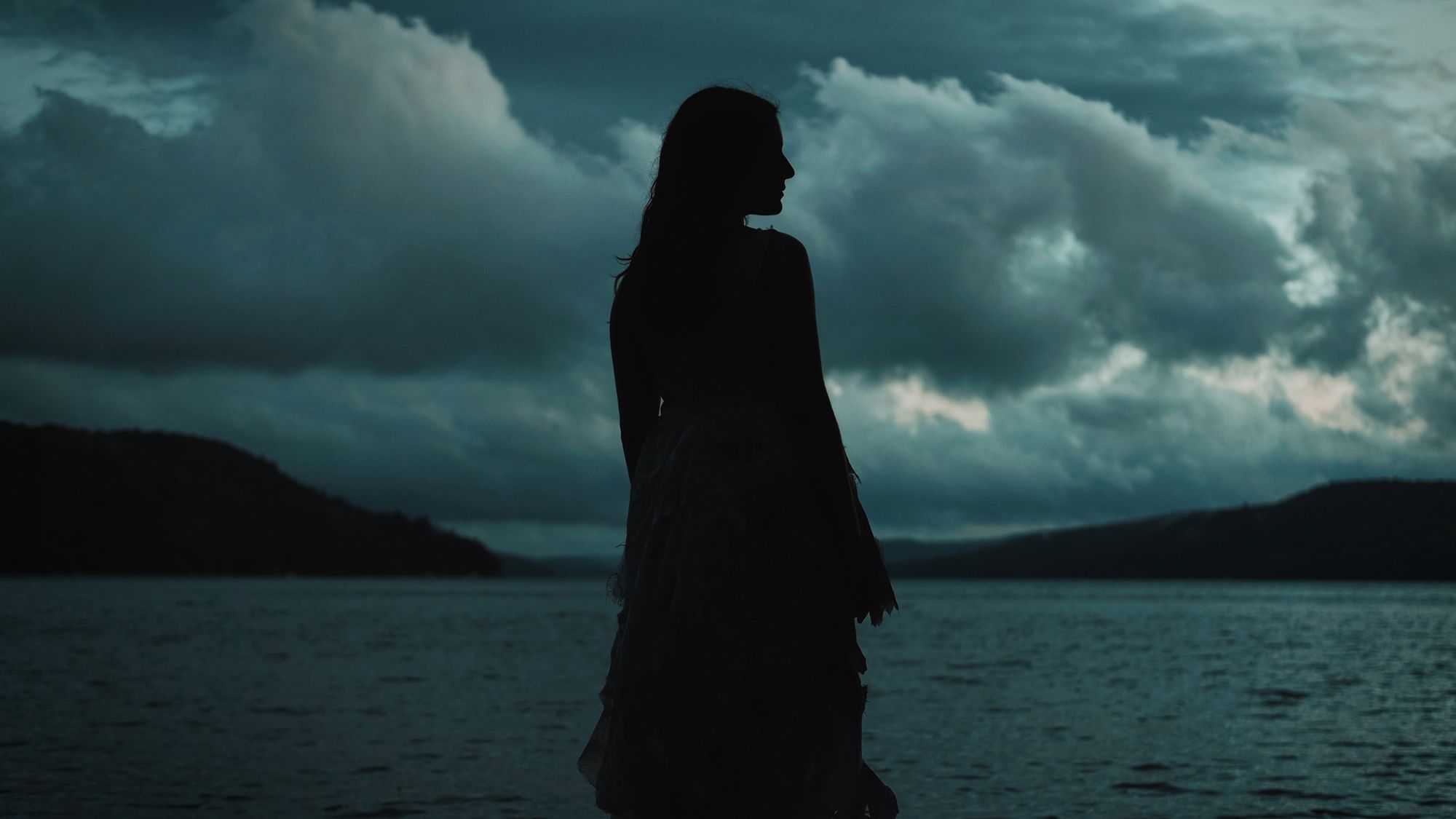The life of Frankenstein author Mary Shelley is ripe for cinematic treatment, but several previous efforts have failed at fully capturing her life on-screen. Following the bland 2017 biopic Mary Shelley, starring Elle Fanning, writer-director Nora Unkel takes a more fantastical approach with A Nightmare Wakes. Following in the tradition of a trio of 1980s movies (Gothic, Rowing Against the Wind, Haunted Summer), A Nightmare Wakes focuses on the time that Mary spent at a villa on Lake Geneva in Switzerland, where she wrote Frankenstein.
Also like those movies, A Nightmare Wakes incorporates elements of Frankenstein into its depiction of Mary’s life, conflating characters and plot points of Frankenstein with developments in Mary’s personal life. It’s a tough approach to get right, and Unkel never quite manages it, ending up with a fractured, incomplete retelling of Frankenstein that also offers little illumination about Mary’s life. Anyone not already familiar with both the Frankenstein story and the circumstances surrounding the novel’s creation is likely to be confused by A Nightmare Wakes, which begins in 1816 at Lake Geneva with no explanation of the characters’ background or their relationships to each other.
Mary (Alix Wilton Regan) has come to Lake Geneva along with her lover Percy Shelley (Giullian Gioiello), the renowned poet, and her stepsister Claire Clairmont (Claire Glassford). They’re staying at a villa just down the road from fellow renowned poet Lord Byron (Philippe Bowgen) and his friend Dr. John Polidori (Lee Garrett). Early in the movie, Byron proposes the famous ghost-story competition that led to the creation of Frankenstein, although the contributions from other participants don’t much factor into the story (Byron largely disappears after a couple of early scenes).
Unkel ties Mary’s writing of the novel to her multiple pregnancies, and A Nightmare Wakes follows a confusing timeline, seemingly stretching the summer at Lake Geneva over the course of many months or even years. As she begins writing the novel, Mary has a miscarriage, and her blood mixes with the ink from her writing, an image that Unkel returns to over and over again, somehow suggesting that the writing of Frankenstein is causing Mary’s difficulty in her pregnancies. It’s not uncommon to equate the birth of a creative work with the birth of an actual child, but the metaphor is muddled here, and it’s never clear what Unkel is trying to say about the act of writing or about Mary’s volatile relationship with Percy.
Mary’s visions of the elements of Frankenstein itself are minimal, casting people in her life as the novel’s characters. So Percy stands in for Victor Frankenstein, while Claire stands in for Victor’s wife Elizabeth, and Mary herself eventually becomes the creature. Again, the thematic resonance here is hard to track, especially once Mary starts to imagine a romantic and sexual relationship between herself and Victor. Is this meant to imply that Victor and the creature are attracted to each other in the novel? Is it a representation of Mary’s deteriorating relationship with Percy (who marries her after his first wife’s suicide)? Or is it somehow implying that Mary is sexually aroused by the act of writing her novel?
Unkel never brings any of these ideas to life, and instead the overall effect of A Nightmare Wakes is to portray Mary as a hysterical, unstable woman, prone to hallucinations and dangerous outbursts, and not fit to be a wife or mother. That’s hardly the portrayal that a pioneering feminist writer warrants, and Regan’s performance mostly consists of needy whining. She’s also far too old for the part (Mary was only 19 when she wrote Frankenstein), thus losing the sense of Mary’s youthful recklessness. The other actors don’t fare any better, from Gioiello as the passive, petulant Percy to Glassford as the dour, scolding Claire. There’s no sense of the love and intimacy that existed in their relationships with Mary.
Unkel is clearly working with a small budget, setting almost the entire movie within the Shelleys’ home and its immediate environs, and her ambitions are grander than her resources allow. Without the ability to depict the wider period setting or various supernatural phenomena, Unkel has to rely on her writing and her actors’ performances to create a convincing environment, and A Nightmare Wakes mostly fails on that account. There’s no insight here about Frankenstein as a novel, about Mary’s tragic life, or about her place in 19th-century literary society.
And although A Nightmare Wakes is premiering as a Shudder original, it’s never scary or horrific. The tone is glum and melancholy, piling on multiple tragedies that occurred over a period of several years and tying them all to the act of writing Frankenstein. Even Mary’s talents as a writer are minimized; at one point she rouses herself from a vision to see that words have seemingly appeared magically on the page. In attempting to celebrate one of the greatest writers in the history of genre fiction, A Nightmare Wakes reduces her to an unwitting, tormented observer of her own wretched life.
Starring Alix Wilton Regan, Giullian Gioiello, Claire Glassford, Philippe Bowgen and Lee Garrett, A Nightmare Wakes premieres Thursday, Feb. 4 on Shudder.



